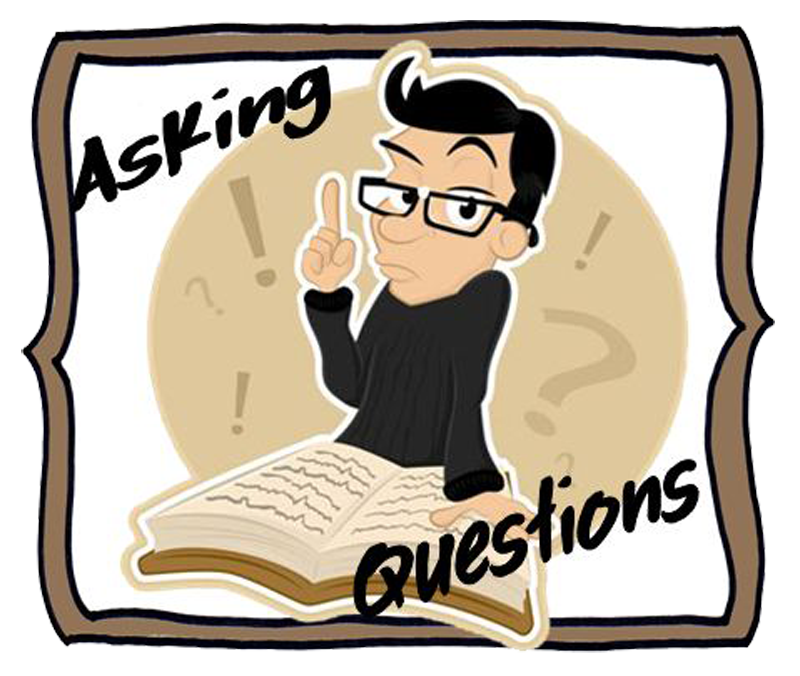When I've tutored students in the past, I've always wondered why I got so many empty stares from the students when I would ask them simple questions on whether or not they understood the topic we were covering. I have discovered the reason why through trying to find out the answer to this simple question: "What do we need to know about asking questions to be an effective teacher?"I discovered that I was asking questions the wrong way.
I have discovered that there is such a thing as a "right way" to ask a question to a class. In the article, The Right Way to Ask Questions in the Classroom, by Ben Johnson, Johnson addresses this point from the very beginning. He begins with pointing out that teachers need to accept the fact that they do not know everything, and when we act as if we do then begin to ask the students silly questions it confuses the students. Students need more than yes or no questions from the teacher. When we ask them yes or no questions, they will usually just answer the question with the majority of the class instead of making themselves look like they don't understand. Johnson addresses these dynamics further in his article, making it seem as if there is a student hierarchy established amongst students. Johnson also states that, "...sometimes the students do not understand, and if they do not know what they do not know, there is no way that they can ask a question about it". That would be a reason to not ask students yes or no questions. He says that the best way to approach asking questions that test for understanding is to ask higher order thinking questions. He also suggests not singling students out to answer questions in class, because it causes the other students to not think about the answer for themselves.
Joanne Chesley's youtube video Asking better questions in the classroom addresses these same points as Johnson does. Chesley states that professors often find students unresponsive in class, and when it comes to answering questions they are simple answers. According to Chesley, that is caused by teachers asking questions that are close ended questions that require yes or no answers. She states that when teachers ask questions that are close ended, students often give the response that the teacher asks for and teachers do not realize it. She suggests open ended questions that can have personalized answers and require more thinking than just guessing yes or no.
The article Asking Questions to Improve Learning provides amazing examples of questions to ask in the classroom and why you should ask them. The strategies they share for asking questions are also great. It, too, examines the use of higher order thinking questions in the classroom. A few points that were made in this article that really struck me as things I should know about asking questions to become an effective educator are follow a yes-or-no question with an additional question, create questions that are centered around the coursework that is being presented to the class in that lecture, and ask questions that can have several answers so that the students can think about others answers and provide their own arguments and support. It causes the students to think about the material more in depth, and to form their own ideas on the material being studied.
The basic things to know about asking questions are to not ask yes or no questions, ask open ended questions that lead to debate or discussion, and ask questions that reflect the course material being covered in that class period. In order to ask questions that are effective for students learning and understanding, we have to find out what makes our students think. We also need to find ways to make sure our questions are making students form their own opinions about the material, and also help the students to realize if they really understand the material or not.

Thoughtful. Thorough. Well done.
ReplyDeleteHi Eva! This is a very good post and I agree that teachers need to ask open ended questions so it gives the students the opportunity for discussion.
ReplyDelete